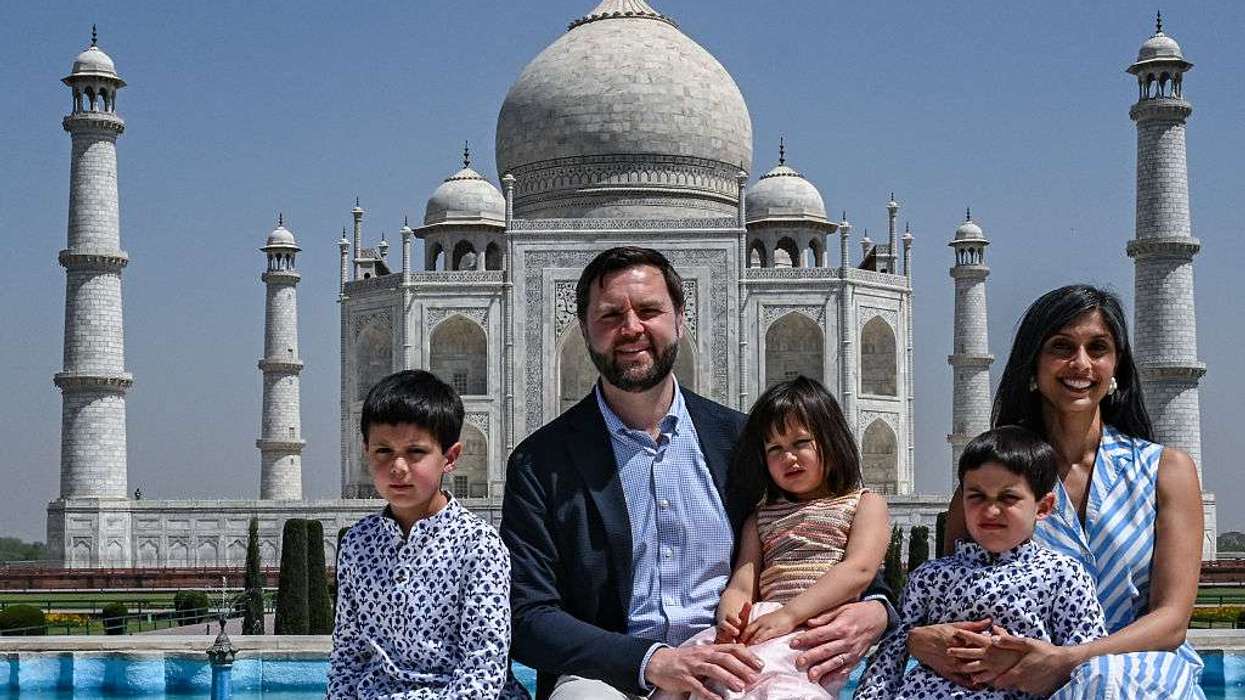A one-time school dropout from a Mumbai slum has turned his life around to become a football coach for 260 children as part of the legacy of the 2022 World Cup.
Govinda Rathod is now a role model for teenagers who want to emulate him by using sport to escape the poverty-stricken world they were born into.
The 29-year-old is a youth ambassador for the Generation Amazing Foundation, a project set up by tournament hosts, Qatar, to improve the lives of a million youngsters around the world.
His incredible journey has seen him rub shoulders with footballing greats such as Xavi Hernandez, David Beckham, Michael Owen, Yaya Toure and Juan Mata.
It is a far cry from a childhood which saw Govinda drop out of school aged 11 and resist moves by his parents to enter him into an arranged marriage the following year.
“I don’t want children to be like I was – washing plates in a café by the side of the road, getting slapped on the head if I was too slow, for 600 rupees a month after 13 hour days,” said Govinda, the youngest of four children whose fisherman father struggled to make ends meet. “I used to give what I earned to my family because we had a lot of debt.”

His escape route came via the Oscar Foundation, a non-profit organisation working with underprivileged children in Mumbai to get them into football.
“When I dropped out of school I had no dream but, through sports, after attending football practices and meeting new people, I realised child marriage was no good.
“Football made me confident and I went back into school when I was 13. Because of football I concentrated on my education again and I was the first in my family to finish my graduation. This all happened because of football’.
To complete his schooling he had to finance his own studies because his family could afford to pay for his books and travelling costs.
“I worked on a construction site for 50 rupees a day and after school used to sell newspapers and magazines at traffic signals for 150 rupees a day. I even used to clean toilets at a hotel. But it meant I was able to pay my costs and finish my education.”.
Through the Oscar Foundation and the global NGO, Street Football World, Govinda travelled to Brazil at the age of 21 to attend soccer development programmes set up around the 2014 World Cup.
Five years later he was in Qatar as a representative of Mumbai for a Generation Amazing festival ahead of the 2022 tournament being hosted by the tiny Gulf state.
“During the festival I was using a mixed gender programme called Football 3 where you would play with specific rules such as requiring every player to touch the ball before scoring, or awarding girls two goals for every one they score.”
It followed a visit to Mumbai by the former World Cup winner, Xavi, who opened a new football pitch in Mumbai and put some local schoolchildren thought their paces.
“There were around 50 boys and girls playing with Xavi. He had one strong message for them which was: ‘Believe in yourself and keep working hard. Remember you have to be patient because change doesn’t come overnight”.
The six-a-side pitch built by Generation Amazing is free for youngsters living in the slum in southern Mumbai to use and an improvement on the patch of muddy ground that was there before.
The pitch – which is used by 1500-2000 boys and girls every week – is where he coaches his pupils, which include 150 special needs children who are either hearing, speech or visually impaired. As well as Mumbai, he also coaches in Karnataka and Rajasthan.
Govinda used to be a defender at state level but became a coach when a knee injury ended his playing career. Now he works for the Oscar Foundation and is a Generation Amazing volunteer,.
“Football gave me the motivation to do something different to my family”, he said. “It gave me the opportunity to do things I could only dream of.”
Anthony Harwood is a former foreign editor of the Daily Mail




